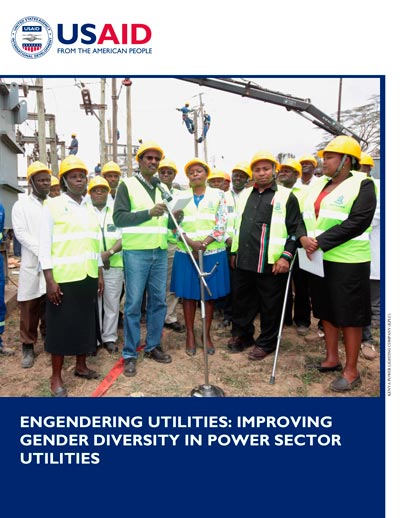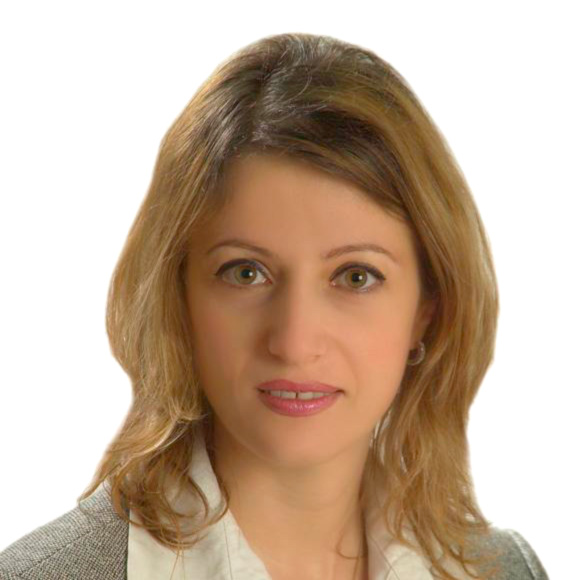Aneta Petrovska-Rusomaroski
Improving Gender Diversity in Power Sector Utilities
Engendering Utilities seeks to increase the professional participation of women in the energy sector while helping utilities meet their core business goals.
Globally, the power sector is male-dominated, both in the field and at corporate levels. Considering the scale and importance of electric utilities in all economies, women are being left out of a critical sector, with potentially harmful impacts both for them and the sector itself. A growing body of evidence indicates that companies with greater gender diversity outperform their peers and score higher in terms of employee satisfaction. The underlying rationale of the Engendering Utilities program is that increasing gender diversity and equity in the power sector can provide not only social and public relations benefits, but makes good business sense. By improving the recruitment and professional career paths of women, utilities can effectively expand the pool of talent available and bring new perspectives to their operations.
USAID’s Engendering Utilities program represents the Agency’s commitment to strengthen energy sector operations and economic growth in developing countries, while promoting gender equality and women’s economic empowerment. Specifically, Engendering Utilities seeks to identify best practices for increasing gender equity and increasing the professional participation of women in the energy sector while helping utilities meet their core business goals.
Engendering Utilities: Increasing Career Paths for Women in the Power Sector
The Engendering Utilities Program is being implemented in three phases, from 2015-2018. Phase I consisted of baseline research and identification of partner utilities. USAID conducted interviews with electric utility board members, management, and staff to identify barriers to increased employment of women. Data was collected from 14 utilities, and seven electric distribution utilities in which there is executive-level commitment to improve gender outcomes were selected as partners. Our partners are:
| Country | Utility Company |
|---|---|
| Jordan | Electricity Distribution Company (EDCO) Irbid District Electricity Company (IDECO) |
| Georgia | Energo-Pro, Georgia |
| Macedonia | EVN Macedonia |
| Nigeria | Eko Electricity Distribution PLC (EKEDP) Ibadan Electricity Distribution Company (IBEDC) |
| Kenya | Kenya Power and Lighting Company (KPLC) |
The baseline survey collected data on women’s and men’s employment by position, access to training and internships, and labor practices. In many cases this was the first time the company had disaggregated employment data by gender.
The baseline survey revealed the following:
-
Women were represented in all job categories across the 7 Partner Utilities, including leadership positions.
-
Women were concentrated in Finance and Customer Service, whereas men were concentrated in technical field operations and field maintenance.
-
Women generally were not benefitting from training, mentoring, or internship opportunities within the utilities. Many of these opportunities were technically focused and overwhelmingly awarded to male employees.
In Phase II, USAID worked with the utilities to review the baseline data and identify potential interventions. Each intervention was customized to meet the needs of the partner utility. Generally, the interventions fell within 3 broad areas: outreach and recruitment; mentoring and leadership; and professional development. All of the utilities conducted Take Your Daughter to Work (EVN Macedonia & EDKP Nigeria) days or created energy clubs in local schools to interest girls in engineering and the power sector. Some created employee resource groups for female employees, while others conducted leadership training for high-performing female employees. All of the utilities also received training in behavior-based interviewing techniques, to remove bias from the hiring process.
Moving Forward: Improving Gender Equity
In the final 16 months of the Engendering Utilities program, the main focus will be the creation of a Gender Equity Best Practices benchmarking tool for Human Resources (HR), which will be used to help our partner utilities conduct a gap analysis of their current HR policies and practices throughout the employee lifecycle. Through participation in a customized Gender Equity Executive Leadership Program, designed and delivered by Georgetown University’s McDonough School of Business, the utilities will receive training and tools that will help them implement the changes suggested by the gap analysis, and effectively plan for and roll out the new HR practices they select to implement.
Data will be collected throughout the roll out of the new HR policies and practices, and all participating utilities will be surveyed again at the conclusion of the program. This new information will be compared to the baseline data to measure the effectiveness of the various interventions, measure progress toward the gender equity goals set by the partner utilities, and gather lessons learned.









Comment
Make a general inquiry or suggest an improvement.